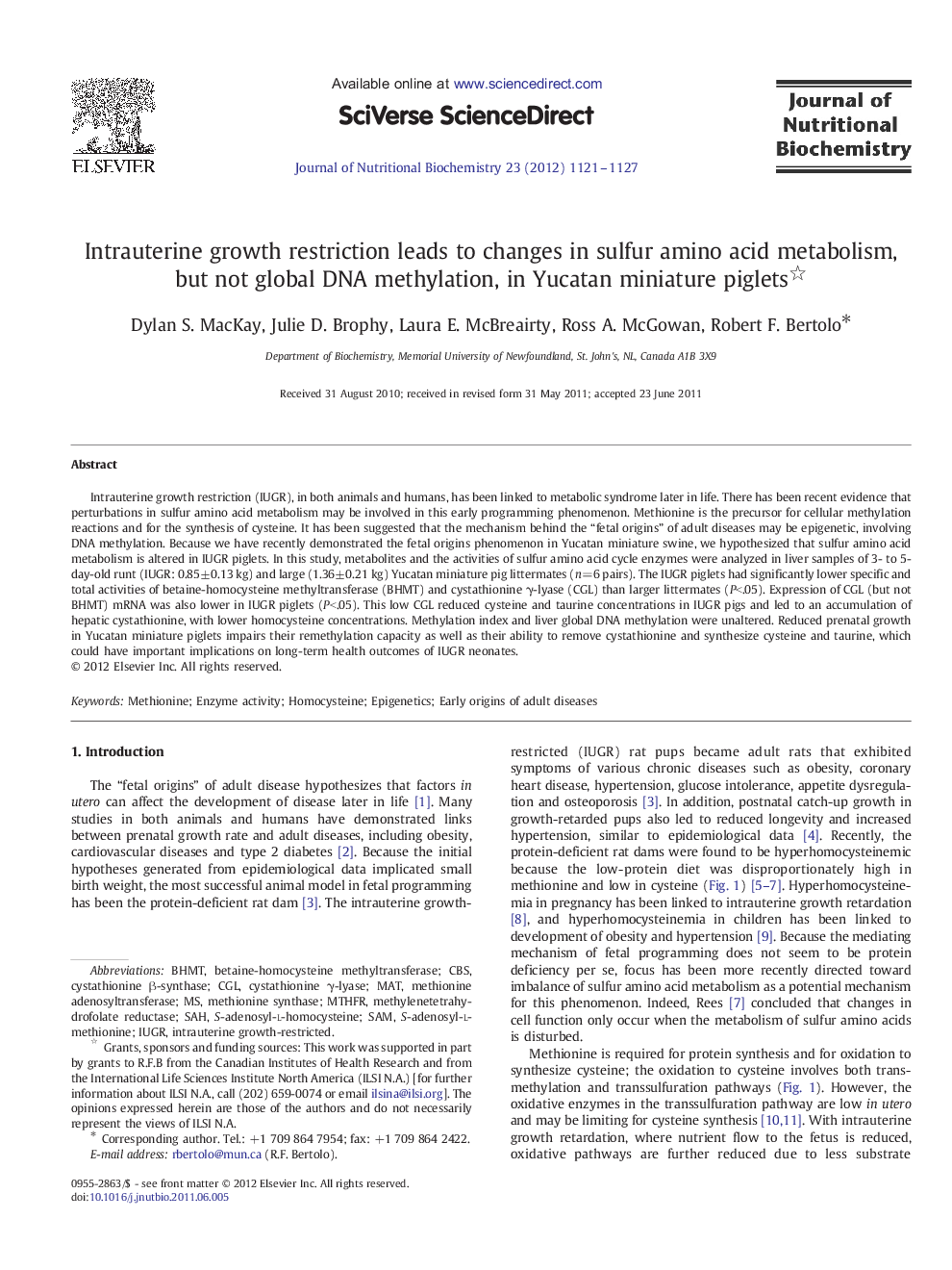| Article ID | Journal | Published Year | Pages | File Type |
|---|---|---|---|---|
| 1989765 | The Journal of Nutritional Biochemistry | 2012 | 7 Pages |
Abstract
Intrauterine growth restriction (IUGR), in both animals and humans, has been linked to metabolic syndrome later in life. There has been recent evidence that perturbations in sulfur amino acid metabolism may be involved in this early programming phenomenon. Methionine is the precursor for cellular methylation reactions and for the synthesis of cysteine. It has been suggested that the mechanism behind the “fetal origins” of adult diseases may be epigenetic, involving DNA methylation. Because we have recently demonstrated the fetal origins phenomenon in Yucatan miniature swine, we hypothesized that sulfur amino acid metabolism is altered in IUGR piglets. In this study, metabolites and the activities of sulfur amino acid cycle enzymes were analyzed in liver samples of 3- to 5-day-old runt (IUGR: 0.85±0.13 kg) and large (1.36±0.21 kg) Yucatan miniature pig littermates (n=6 pairs). The IUGR piglets had significantly lower specific and total activities of betaine-homocysteine methyltransferase (BHMT) and cystathionine γ-lyase (CGL) than larger littermates (P<.05). Expression of CGL (but not BHMT) mRNA was also lower in IUGR piglets (P<.05). This low CGL reduced cysteine and taurine concentrations in IUGR pigs and led to an accumulation of hepatic cystathionine, with lower homocysteine concentrations. Methylation index and liver global DNA methylation were unaltered. Reduced prenatal growth in Yucatan miniature piglets impairs their remethylation capacity as well as their ability to remove cystathionine and synthesize cysteine and taurine, which could have important implications on long-term health outcomes of IUGR neonates.
Keywords
Related Topics
Life Sciences
Biochemistry, Genetics and Molecular Biology
Biochemistry
Authors
Dylan S. MacKay, Julie D. Brophy, Laura E. McBreairty, Ross A. McGowan, Robert F. Bertolo,
